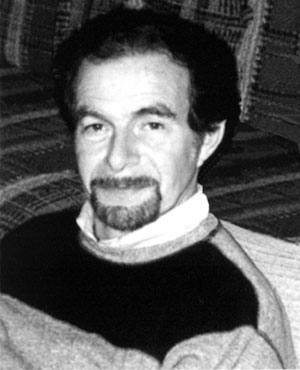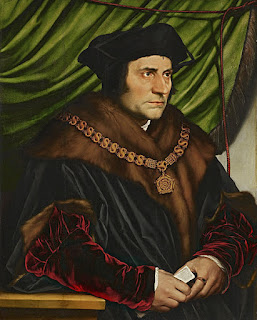Sixteen stories made the cut; one more than last year. None were from websites, but that is probably because I looked at fewer of those in 2012, having plenty of paper stuff to occupy my mind.
The big winner was Ellery Queen's Mystery Magazine, with seven hits. Alfred Hitchcock's Mystery Magazine had four. No other market had more than one.
For the first time ever one author has two best stories in the same year. They had oddly similar plots, showing that a talented chef can make two very different dishes with the same ingredients. Five stories are by friends of mine from the SleuthSayers/Criminal Brief mafia. You can read that as blatant favoratism or an indication of the talent of that stable.
One honoree is a first story. One is by a German (last year it was two, oddly enough). Two have supernatural elements. Five are funny.
And by main character we have:
criminal 5
cop 4
victim's relative 3
amateur detective 2
victim 1
witness 1
spy 1
Yes, that adds up to 17. One character is multitasking. And now, let us present the winners...
Allyn, Doug. "Wood-Smoke Boys," in Ellery Queen's Mystery Magazine, March/April 2012.
When I was ten years old, my favorite uncle murdered my favorite aunt.
Thus begins a wonderfully-written story of country folk versus city folk in the north woods of Michigan. Dylan LaCrosse is the narrator and his back woods family suffers some terrible times, but they don't suffer quietly, which leads to the local warning: "Never cross a LaCrosse."
Now Dylan is a cop and state police are coming in to investigate the murder of a state legislator who caused tragedy to the LaCrosse family. Can Dylan stay alive and solve the puzzle? And whose side is he on?
Anthony, Ted. "A User's Guide to Keeping Your Kills Fresh," in Staten Island Noir, edited by Patricia Smith, Akashic Press, 2012.
Manny Antonio is a hit man, but he isn't very good at it. This is the story of his last contract, told by someone who knew him well, and didn't like him very much, nor respect his mental agility.
If complete clarity were an all-you-can-eat buffet of Chinese food, Manny would ask for the menu and order the chicken and broccoli.
And so we see what should have been an easy assignment turn into a disastrous trek around the metropolitan area with a trunkful of forensic evidence that grows smellier by the hour. When we are told that shooting a rent-a-cop between the eyes was "the last rational thing he will do on the final night of his life," you know Manny is not having a good week.
Beck, Zoe. Out There," in Ellery Queen's Mystery Magazine, February 2012.
Among the other changes that e-mail has wrought in the world is an improvement in epistolary fiction. It is possible to exchange letters a lot faster than when DIego de San Pedro wrote the first epistolary novel in the fifteenth century.
And that's what German author Zoe Beck presents with, a story written entirely in e-mails. Most of them are written by Gil Peters, who is a successful author despite having agoraphobia so fierce that she hasn't left her apartment in eight years. But that's okay, she has adjusted to it, and with her computer and her shrink on tap she is do fine.
Then her doctor goes on vacation just when an unacceptable change happens to her home. Things start to go rapidly out of hand...The only thing I love better than a twist ending is multiple twists, and Beck provides them.
Clerici, Louisa. "The Rose Collection," in Dead Calm: Best New England Crime Stories 2012, edited by Mark Ammons, Katherine Fast, Barbara Ross, Leslie Wheeler, published by Level Best Books, 2012.
Obsession is either comic or tragic, depending on how close you are standing to the fallout. The narrator is Laura, a woman who lives a pleasant if slightly stir-crazy life in rural Indiana. Her life is changed when an elderly neighbor leaves her a piece of costume jewelry: a brooch that was "all sparkly with a pale gold intricate rose." Get used to detailed description, because Laura provides them for whatever she thinks is interesting, while glossing over things she considers less important. And that, you might say, provides the key to her character.
Laura starts studying about jewelry at the library and discovers that the best chance to get more is a big flea market in Cumberland, Indiana. Problem is her husband doesn't want her to go. That doesn't turn out to be a problem for long, because he dies. In fact, it is best not to get between Laura and her jewelry plans.
"Halley's Comet," by Reed Farrel Coleman, in Crime Square, edited by Robert J. Randisi, Vantage Point, 2012.
The setting is the 1970s, the time of Serpico and the Knapp Commission, when the NYPD was full of dirty cops and the dirty cops were full of fear of the Knapp Commission. In this story two police detectives are being pushed into a n action that will move them from being bent to being totally rotten. And just as the point of no return approaches, well, police work intervenes. A wild and twisty climax ensues.
Dean, David. "Jenny's Ghost," in Ellery Queen's Mystery Magazine, June 2012.
Picture the setting: you are in an airport, stuck in that endless half-life between flights and suddenly you spot something that can't possibly be there: a woman who died a decade before. Hell of a set-up, isn't it?
David noted that this is a story about consequences. Not surprisingly it is also about guilt, and the chance of redemption. These are subjects for fiction I am very much drawn to.
DuBois, Brendan. "The Final Ballot," in Mystery Writers of America presents Vengeance, edited by Lee Child, Mulholland Books, 2012.
Beth's daughter was brutally attacked by a son of the senator/candidate. The man-of-the-world described above is the problem solver. "In other words, I'm the senator's bitch." He offers her two choices which he insists on calling "avenues." She can pursue prosecution of the senator's son, guaranteeing herself years of being stripped naked by the press, attacked by his supporters, dragged out as a symbol by his enemies... or she can agree to let the culprit get psychological treatment and accept financial aid from the senator to cover her daughter's long-term medical needs.She makes her deal but things go wrong and...

Two old sayings apply: Never fight with someone who has nothing to lose. And: the most dangerous place in the world is between a mother and her children.
DuBois, Brendan. "His Daughter's Island," in Ellery Queen's Mystery Magazine, July 2012.
Zach Ford is a mild-mannered accountant in a small town in Maine. His beloved daughter goes off to a party at the home of a millionaire and dies. The millionaire's son is whisked out of the country, far from the possibility of justice.
In some stories the next step would be a whole lot of guns and blood, but Mr. Ford has a different idea. He studies up on the millionaire, and then he studies the state and local ordinances. And starts plotting a completely legal vengeance.
Gates, David Edgerley. "Burning Daylight," in Alfred Hitchcock's Mystery Magazine, July/August 2012.
Hector is a deputy in Montana, near a national forest. When two kids report seeing a double-wide trailer explode he knows it was a meth lab. Since the drug-maker went up with his product Hector could have let it go at that but he is a good cop and wants to know what happened: specifically, how did a Gulf War vet wind up making drugs out in the wilderness? And which comes first, supply or demand? The trail becomes darker and grimmer.
"With all due respect, don't preach the law to me."
"The law's all we've got between us and the stone age."
"Frank, for Christ's sake, this IS the stone age."
Goree, Raymond. "A Change of Heart," in Alfred Hitchcock's Mystery Magazine, October 2012.
Goree's first story is a wonderful debut. The narrator is a Las Vegas cop who, at around age 40, suffers a heart attack. Turns out his ticker is in horrible shape. ("Like trying to sew Jell-o together," says the surgeon.) After some more horrible luck ("Jokes on you, says God.") he gets a heart transplant. By coincidence he had met the donor, a cancer patient named Sammy, in the hospital.
But after the operatioon our hero gets visited by Sammy the donor. Creepy, huh? And Sammy wants him to prevent his daughter from getting involved in a crime. "I can't get through to her," Sammy complains. "It's like I'm not even there."
Wonderfully written, one-of-a-kind plot.

Hockensmith, Steve, "Frank," in Alfred Hitchcock's Mystery Magazine, October 2012.
Frank is a retired police detective, living in an assisted living complex. Frank's memory is, at best, shaky. He can't always remember what day it is, or the names of his neighbors (although in the case of at least one neighbor's name, Hockensmith notes drolly, "forgetting it had been a choice.")
But now a series of crimes are happening in the complex -- maybe. Unless someone is imagining it in senile dimensia. Can Frank pull himself together long enough to catch the culprit? And what if he is the culprit?
Witty, touching, and a twist at the end. What more do you want?
Howe, Melodie Johnson, "Losing It," in Ellery Queen's Mystery Magazine, August 2012.
My friend Melodie has built a story is so twisty it makes a corkscrew look like a knitting needle.
Callie Taylor is a mousy manicurist. Mike is the boyfriend, supposedly working on a screenplay, but apparently only working on the groceries Callie brings home on her paycheck.
One night Callie rebels against her life by spending a thousand dollars she can't afford on a shawl. Mike hates it because it keeps her from looking "normal," the ordinary person he wants her to be.
And then, late one night in a bar, she loses the shawl. And worse, one of her wealthy customers shows up wearing the shawl. How can Callie get it back without losing her job?
Where ever you think this story is going you're wrong.
Law, Janice, "The Double" in Sherlock Holmes Mystery Magazine, Issue 7
My friend Janice has created a little gem here, I think.
Malik has the fortune, good or bad, of resembling the General, his country's beloved dictator. Naturally he is assigned the job of impersonating the General, saving him from boring meetings and assassingation attempts.
But the General is a far-thinker and he sends Malik, with proper supervision, to set up a new life for himself in Miami, just in case at some time in the future the General turns out not to be so beloved. And that works fine until the inevitable happens.
Because only one person can live that new life, right?
Modrack, Barbara Arno, "Acting On A Tip," in Ellery Queen's Mystery Magazine, July 2012.
This is the only story on the list that didn't make the best-of-the-year cut when I first read it. But going through my weekly bests at Little Big Crimes in preparation for this review I went oh yeah, THAT one.
Marty had been a reporter for the Detroit Free Press for decades when the buyouts started. One day his editor urged him to take the proffered buyout, and the reason clearly had less to do with his age than with the booze Marty was drinking for breakfast. Marty's wife made him the following offer:
They would sell the house and move Up North to the family cottage she had just inherited. Ryan, their youngest, would complete his senior year in high school there. Jenny would refresh her nursing license and become the breadwinner. And if they did all that and Marty quit drinking, they could do it together and Jenny would not leave him.
A few months later Marty is clinging to sobriety by his fingernails when he wakes to a radio report of three murders in the little town where they are living. Maybe the Free Press would like a reporter on the scene? Maybe he can drag a scrap of self-worth out of the ruins?
My friend Janice has created a little gem here, I think.
Malik has the fortune, good or bad, of resembling the General, his country's beloved dictator. Naturally he is assigned the job of impersonating the General, saving him from boring meetings and assassingation attempts.
But the General is a far-thinker and he sends Malik, with proper supervision, to set up a new life for himself in Miami, just in case at some time in the future the General turns out not to be so beloved. And that works fine until the inevitable happens.
Because only one person can live that new life, right?
Modrack, Barbara Arno, "Acting On A Tip," in Ellery Queen's Mystery Magazine, July 2012.
This is the only story on the list that didn't make the best-of-the-year cut when I first read it. But going through my weekly bests at Little Big Crimes in preparation for this review I went oh yeah, THAT one.
Marty had been a reporter for the Detroit Free Press for decades when the buyouts started. One day his editor urged him to take the proffered buyout, and the reason clearly had less to do with his age than with the booze Marty was drinking for breakfast. Marty's wife made him the following offer:
They would sell the house and move Up North to the family cottage she had just inherited. Ryan, their youngest, would complete his senior year in high school there. Jenny would refresh her nursing license and become the breadwinner. And if they did all that and Marty quit drinking, they could do it together and Jenny would not leave him.
A few months later Marty is clinging to sobriety by his fingernails when he wakes to a radio report of three murders in the little town where they are living. Maybe the Free Press would like a reporter on the scene? Maybe he can drag a scrap of self-worth out of the ruins?
This novelette is the best Sherlock Holmes pastiche I have read since Nicholas Meyer turned the field on its ear with The Seven Percent Solution.
James explains in an introductory note that the idea came when he read that during the nineteenth century the British intelligence service used doctors as spies in Asia. Of course, Dr. Watson was an army doctor in Afghanistan. And who was the head of British intelligence? Sherlock Holmes's brother Mycroft. If Watson was one of Mycroft's spies, than surely it was no coincidence that he wound up in a position to keep an eye on his boss's eccentric brother...
A treat from beginning to end, with shrewd explanation's of some of the canon's puzzling elements, and some genuine shocks along the way.
Warthman, Dan. "Pansy Place," in Alfred Hitchcock's Mystery Magazine, January-February 2012.
Jones is fitting into retirement. Bought his condo in Elmwood Village, voted a couple yers ago one of the country's ten best neighborhoods. Second story, corner unit, overlooking Bidwell Parkway...
At first we don't learn much about Jones, just about the young cleaning woman he hires and makes friends with. Then we are introduced to her boyfriend.
Trouble erupts in the life of the young couple and Jones shows his true colors. We meet a few new characters, finely drawn bad guys who cherish the use of the right word and the right action even while they are doing objectively wrong things.It can be good to have a tough guy on your side, even he is allegedly retired.























